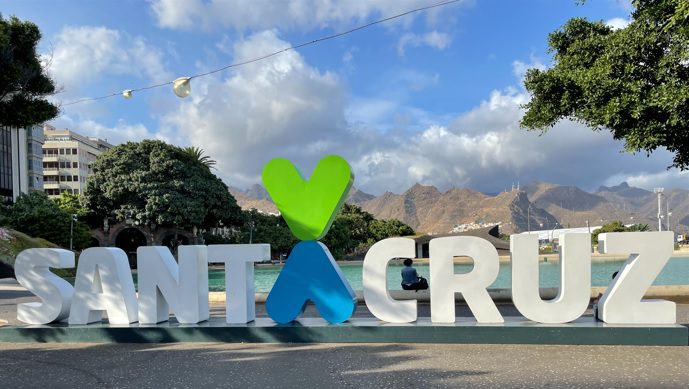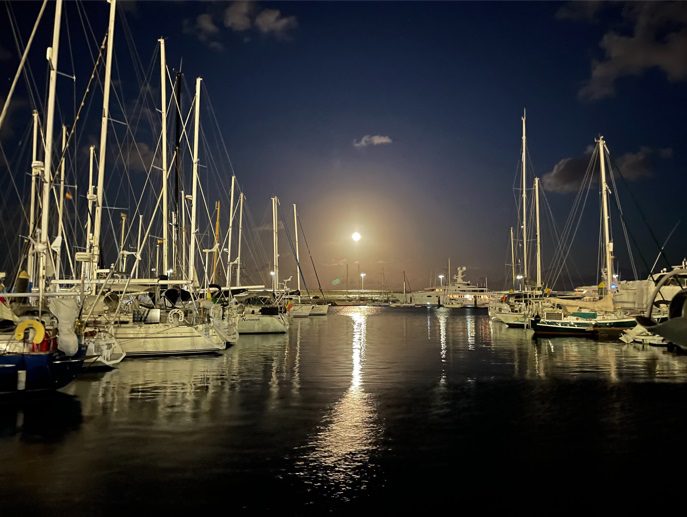Landfall Santa Cruz Tenerife
Wednesday Evening, Sept 22, 2021
Latitude 28o 28’ N
Longitude 16o 15’ W
Santa Cruz Marina, Tenerife
Landfall
On the afternoon of Sunday, Sept 19th a hint of the high coastline of Tenerife first became visible shrouded in haze. That evening and on into the night, the sailing remained the same as it had been for the previous five days with moderate winds pushing us straight towards Tenerife.
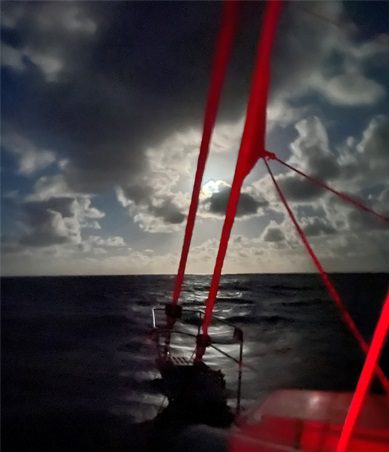
Having winds blow straight towards ones destination might sound ideal but, in terms of comfort, a little offset is better. It the winds are over one shoulder or the other, the boat will lean and settle towards the opposite side. With the wind dead astern, she rocks from rail to rail, subject to the whims of the waves. But we conceded the rocking in exchange for our steady progress towards the Santa Cruz Marina, Tenerife, where a berth was reserved for our arrival on the 22. The last run of the night on the 19th was a combination of mostly clear skies, full moon, and the motivation of the silhouette of Tenerife growing steadily larger.
As often seems to happen, we were going to arrive ahead of schedule and at night. Even with a full moon, the idea of entering the marina at night and after hours was not appealing. As the island geography would have it, about 10 km north of the Marina was a cove at Playa Antequera, suitable for anchoring. Even with a full moon, anchoring at night is a little spooky, since the surrounding cliffs look much closer than on the chart plotter. But with the aid of the chart plotter and the depth finder, we dropped anchor in about 30 feet of water, put on the anchor alarm, and went to sleep.
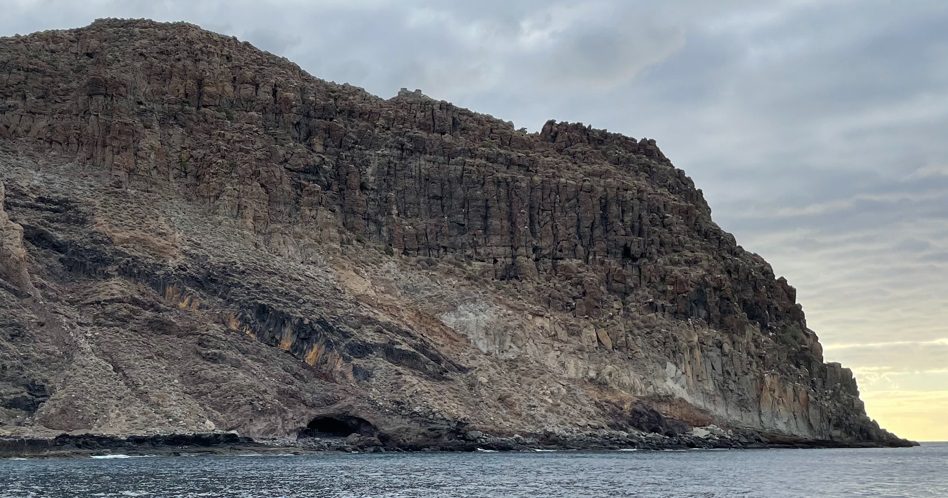
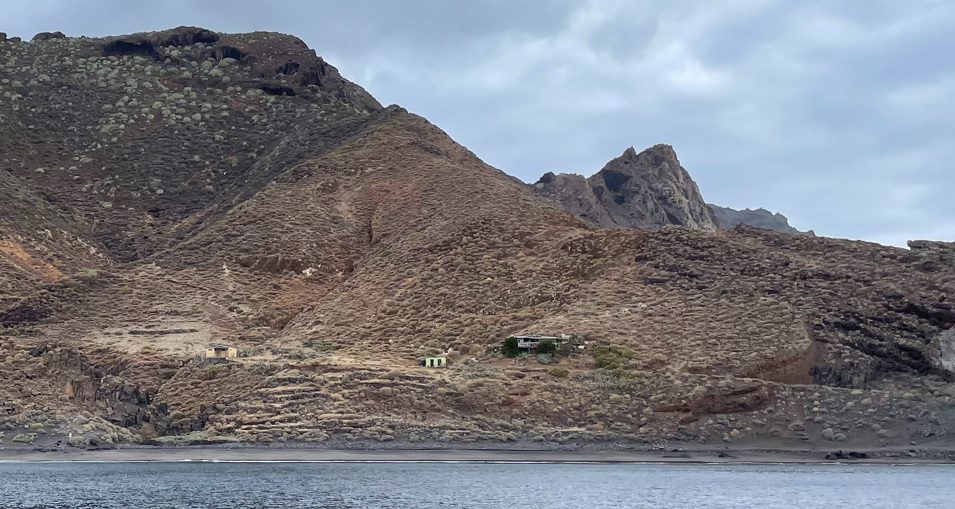
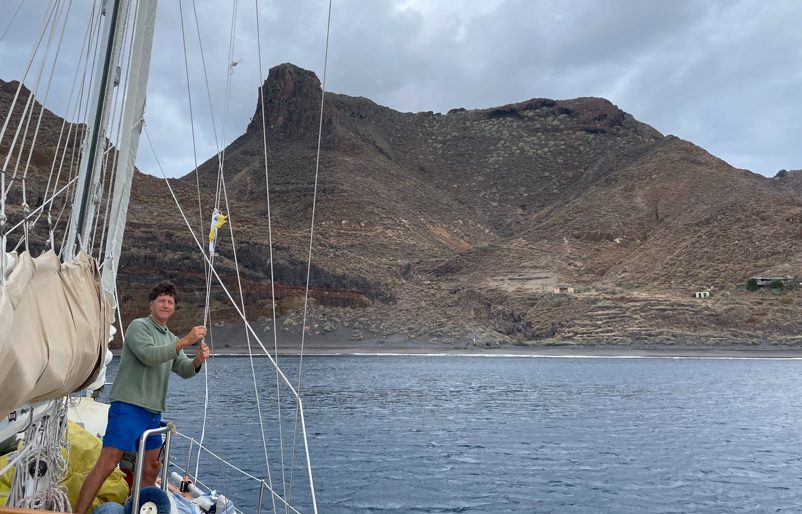
In the morning, Pete called the Santa Cruz Marina on the Satellite phone and used his proficiency in Spanish to ask if they had a slip for us, even though we were two days early. They replied that there was a berth and we weighed anchor within the hour and headed down the coast to secure the boat in a slip for the next three weeks.
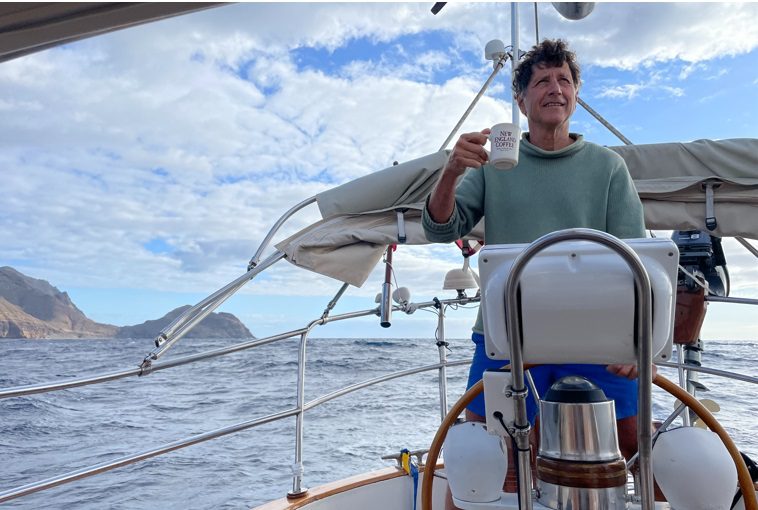
Unless you’re Captain Ron, docking at a marina typically instills more “pucker factor” than would any wind or waves at sea. I’m no exception and will habitually share that concern with the crew. Admittedly, that may or may not be the best strategy in terms of instilling crew confidence when they hear their captain whimpering on the approach. Fortunately, the crew, in this case Peter, usually reassure me that everything will work out, and so it did.
We round the massive breakwater protecting the marina and the waters become calm, although the winds are still a respectable 20 knots, with gusts. Pete’s calling on the radio, again in Spanish, to determine where they want us. What side do we need the fenders? Put some on both. It’s a downwind entry so I’m reminding myself not to let the boat gain too much momentum as she turns in, since she’s hard to control when in reverse. She’s a portly 30,000 lbs. At the same time, the bow tends to get caught by the wind, so some speed is needed to maintain steerage. And then we see the dock hand pointing us to our berth. With relief he’s pointing to a gentle left-hand turn into the slip, with no boat filling the other half. Bring the bow around to align with the finger; engine in reverse to slow her down. Pete and the dock hand secure the spring line and bow line and I jump off to secure the stern. We have safely arrived in Santa Cruz.
